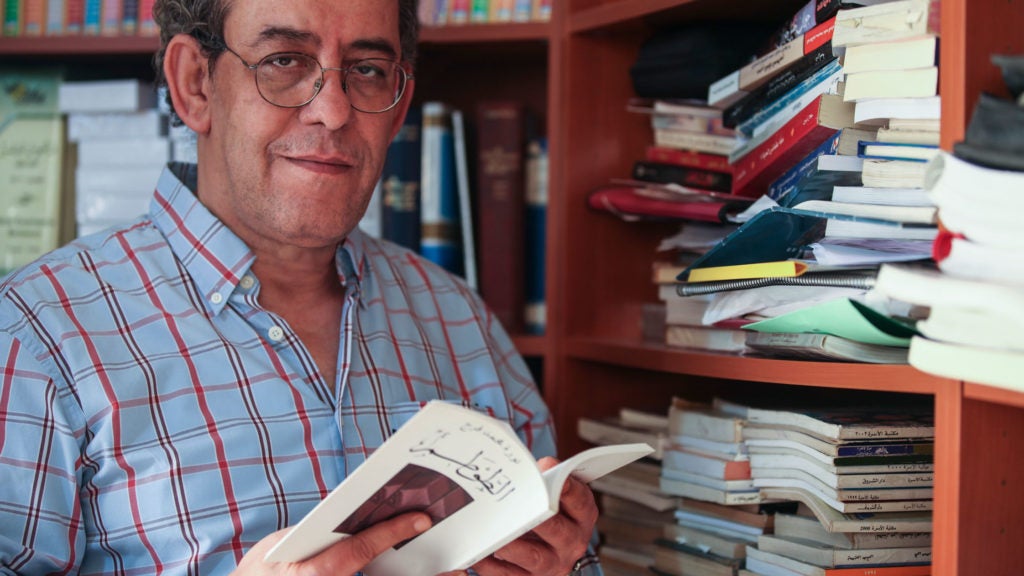Georgetown Pioneers Arabic Language Teaching Initiative

Georgetown University School of Foreign Service in Qatar (SFS-Q) is launching a groundbreaking Arabic-language teaching program aimed specifically at students from an Arab background – known as “Heritage Learners” – to prepare them for optimal performance in Arabic-speaking professional environments.
Georgetown will be leading the development of this program in collaboration with Northwestern University in Qatar and Carnegie Mellon University in Qatar, intending to serve both their students and those elsewhere in Education City and, eventually, beyond. The program is designed to serve as a model for other programs worldwide.
“This initiative will break new ground in the development and delivery of Arabic-language tuition for the benefit of our students at SFS-Q and, ultimately, of all of Education City and ,” said Dr. Gerd Nonneman, Dean of SFS-Q.
The program, which will start from September for SFS-Q students initially but will be developed further over the next three years, comes amidst mounting concerns about the effectiveness of Arabic-language teaching in Qatar and the Gulf region, especially in light of the limited ability of many Arab high-school and even university graduates to function at the highest professional level in Arabic – regardless of their other qualities and skills.
“This new initiative will address two groups of students of Arabic who fall outside the traditionally predominant group who learn Arabic as a foreign language,” explained Dean Nonneman.
The first group comprises the ‘heritage learners’ who often find it difficult to learn their own language at advanced stages because of a lack of instructional materials that cater to their specific needs. The second group is that of native speakers who require new material from that found in Arab universities, which mimic the curriculum of the secondary level. Courses geared for these students are equivalent to courses such as “English for Special Purposes” or “Professional English.”
In a recently-concluded study on Arabic language in Doha’s schools, funded by Qatar National Research Fund and conducted by a team from Georgetown SFS-Q, it was found that the level of education in standard Arabic amongst students in primary and secondary public schools was on average three years below their age level. The study was led by Prof. Abbas Al-Tonsi, who is also one of the leaders of the new program.
“Because our existing Arabic program offered the most variety of courses at Education City, and our faculty has just competed a major study on the subject of ‘heritage learners’, as well as already having introduced a measure of targeted teaching for these two categories last year, Georgetown has comparative advantage in taking this new initiative forward,” says Dr. Nonneman. “But we very much see this as a collaborative effort with our colleagues elsewhere at Hamad Bin Khalifa University (HBKU).” The new program is being developed in close coordination with the leadership of HBKU.
Prof. Al-Tonsi comments: “The new initiative will enable a student of business to continue learning about his or her major but also much expand the ability to read and write in the clearest of Arabic. The same is true for a media student or a political science student. They will then know business or media or political science not just in English, but also in Arabic. ”
To make the program effective, a range of special purpose courses, content courses and literature courses will be designed, in addition to new teaching materials and textbooks, new assessment methods and an expansion of extra-curricular activities.
“Arabic for Heritage Learners” will immediately be taught in a new intensive format at Georgetown, and over the next 12 months further research and development will set the scene for the program’s expansion with additional carefully selected faculty being recruited over the next two years. Eventually a web-based component will also serve the wider community.